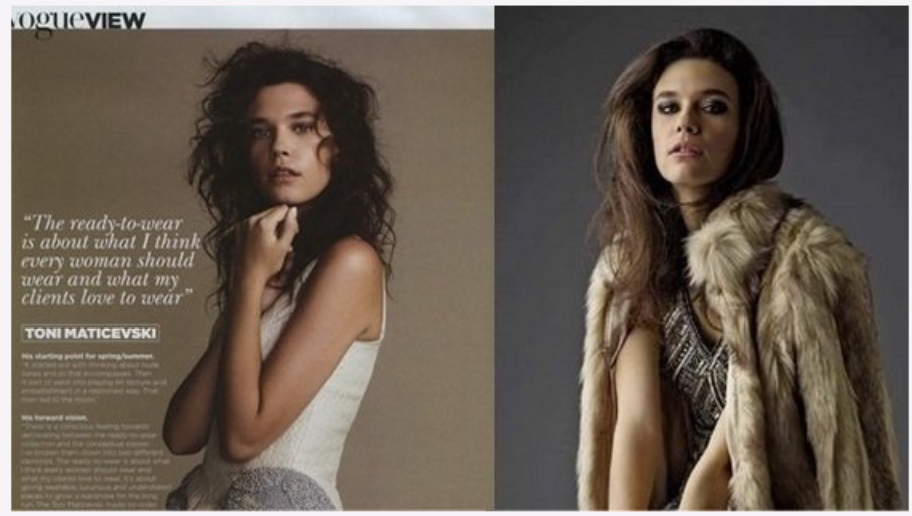Vogue UK Editor: Stop Blaming Skinny Models for Low Self-Esteem

By:
Editor-in-chief of Vogue UK Alexandra Shulman strongly believes that skinny models should not be blamed for women's self-esteem and body image issues.
In an interview with the British television network ITV, Shulman defended the appearance of thin models on the catwalk and argued that designers shouldn't be forced to stop using skinny models because of people's personal feelings of body dissatisfaction or over eating disorders.
ALSO: The Ridiculous Reason This Designer Was Accused of Betraying Plus-Size Women
"It's easy to say that a skinny model is responsible for encouraging young women to feel bad about themselves, but I absolutely strongly believe that that is not the case. I think it would be very unfair to say that a model who is extremely skinny should not be on the catwalk because someone will attach their own feelings about their self-image, and possibly problems they've got with an eating disorder, to that girl."
"None of us probably feel that great about how we look," Shulman added. "We don't think that we are perfect. The question is, when does that feeling of dissatisfaction turn into something really harmful and self-harmful. The point I'm making is that, in the main, it's not the generality of looking at a model that is the tipping point."
Schulman's comments come in light of one group's decision to look into creating legislation that would ban ultra-thin models from walking in runway fashion shows in Britain, the Huffington Post reports. Head of the All-Party Parliamentary Group on Body Image, Caroline Noakes MP, is advocating a law that would ban models with a BMI less than 18. The All-Party Parliamentary Group on Body Image decided that it would explore model health standards after model Rosie Nelson created a change.org petition in September calling for laws to be put in place to monitor models' health.
Related: Cara Delevingne Shares The Dark Side Of Modeling
According to her petition on change.org, after Nelson was told twice by a modeling agency that she needed to lose more weight—even though she dropped to a size 4 and lost 2 inches off her waist—Nelson decided that enough was enough.
 Change.org/Rosie Nelson - change.org
Change.org/Rosie Nelson - change.org
Nelson described her decision in a change.org petition:
"When I look in the mirror I see someone who is healthy and comfortable in her skin. That's because I had the guts to carve out my own path and refuse to let people pressure me into losing more and more weight. But with London Fashion Week the reminders are everywhere that we need to protect young girls, and boys, who are put under pressure to be dangerously thin. The agencies managing and recruiting models have a responsibility to the wellbeing of girls on the catwalk at fashion week, and in the industry as a whole.
France's approach to modeling
France is one nation making headway in this on-going problem. According to the Guardian, France passed a law in April preventing models with a body mass index of less than 18 from being hired. Anything less than a BMI of 18.5 is considered unhealthy by the World Health Organization.
However Shulman doesn't have an answer for whose responsibility it is to protect models from unhealthy lifestyles and standards. In fact, she feels that creating laws that essentially regulate a model's weight is counter productive.
"I cannot think of anything more degrading and more appalling for girls who are models to have to through than being, you know, measured and weighed like they're a kind of heifer," Shulman said. "After all, you have to remember that no one is being forced to be a model and if you choose to enter a industry where you are being judged on your shape that is your choice."
Although she is not in favor of laws regulating the size of models, Shulman believes that any girl severely suffering from negative body perceptions or eating disorders should not be allowed to walk on the catwalk.
